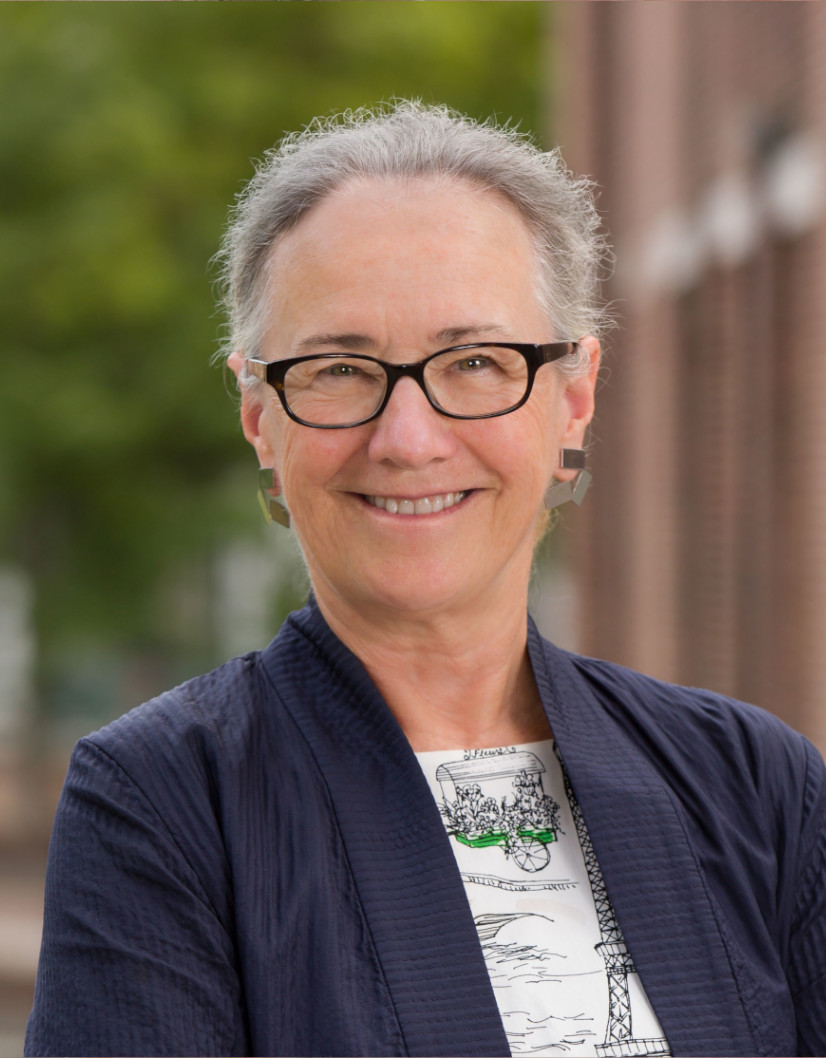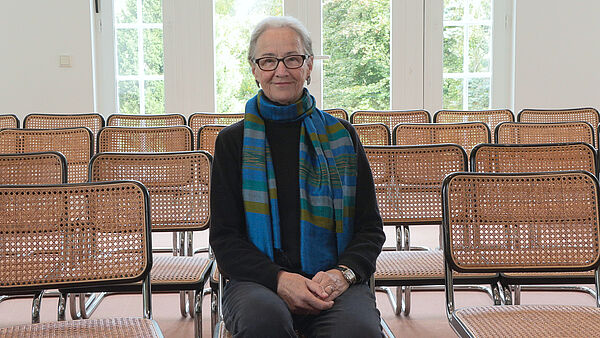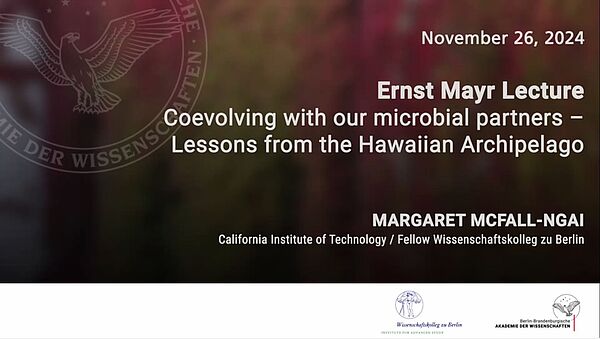
Margaret McFall-Ngai, Ph.D.
Senior Researcher
Carnegie Science, Washington, D.C.
California Institute of Technology, Pasadena
from September to December 2024
Born in 1951 in San Bernardino, Cal., USA
B.S. in Biology from the University of San Francisco, Ph.D. in Biology from the University of California, Los Angeles
Arbeitsvorhaben
Reshaping Education in the Biological Sciences
My research plan focuses on how academic fields adjust to major conceptual shifts. Specifically, I will interact with scholars in diverse fields asking how their discipline has been reshaped in response to a radical new idea, and how education was recast. Two major revolutions in biology were: in the 1800s, the development of the theory of evolution by natural selection; and in the 1900s, the discovery of DNA as the genetic material of life. Technological advances in DNA sequencing _15 years ago have made this process inexpensive, resulting in a 21st-century revolution with the discoveries that the vast diversity of the biosphere is microbial and that microbes are essential for the health of all major components of the natural world. These discoveries demand a fundamental change – the integration of microbiology and macrobiology, which have developed largely as independent fields. A more holistic view can unify biology in ways not possible before. Significance: humankind is at a critical crossroads, facing the challenges of global climate change, while maintaining human, animal, and environmental health. Biologists now recognize that understanding the form and function of the microbial world will be critical to the development of strategies to address these challenges, but, in the face of intellectual silos, the field is ill-prepared. A metaphysical approach to and an examination of biology education is an essential first step for the discipline.Recommended Reading
McFall-Ngai, Margaret J. (2007). “Care for the Community: A Memory-Based Immune System May Have Evolved in Vertebrates because of the Need to Recognize and Manage Complex Communities of Beneficial Microbes.” Nature 445: 153. https://doi.org/10.1038/445153a.
McFall-Ngai, Margaret J., Michael G. Hadfield, Thomas C. G. Bosch, Hannah V. Carey, Tomislav Domazet-Lošo, Angela E. Douglas, Nicole Dubilier, et al. (2013). “Animals in a Bacterial World, a New Imperative for the Life Sciences.” Proceedings of the National Academy of Sciences 110: 3229–3236. https://doi.org/10.1073/pnas.1218525110.
Nyholm, Spencer V., and Margaret J. McFall-Ngai (2021). “A Lasting Symbiosis: How the Hawaiian Bobtail Squid Finds and Keeps Its Bioluminescent Bacterial Partner.” Nature Reviews Microbiology 19: 666–679. https://doi.org/10.1038/s41579-021-00567-y.
Kolloquium, 01.10.2024
Unifying Biology by Integration of Micro- and Macrobiology
It has become clear that the critical challenges currently facing humankind (food and energy production, health, and environmental sustainability) have biology at their base, and that biology will provide the principal solutions. Such solutions will not be approachable, however, without strong reliance both on the physical sciences (e.g., physics, chemistry, geology), and on engineering and mathematics (e.g., classical mathematics, statistics, computer science). 1 The recognition of this reality demands a rethinking of undergraduate education in the STEM fields, i.e., such a remodeling is essential for the development of novel approaches for facing the challenges of a rapidly deteriorating biosphere.
What is it about the current state of STEM education that creates barriers inhibiting collaborative efforts within and across fields? Starting with the field of biology itself, a university curriculum often does not provide the students with a comprehensive foundation of the field; specifically, biology has become increasingly siloed over the last decades. This siloing is reflected not only in the structures of departments and organization of the funding agencies, but especially in the biology curriculum at universities. For example, beginning with the freshman year of an undergraduate education, students are encouraged to focus immediately on subdisciplines such as molecular biology or ecology; in this example, they may not gain much of an understanding of the context of the molecular events nor of the molecular underpinnings of an ecological niche, respectively. Interestingly, while biologists often do not get a truly broad foundational course in their own field, they typically take such courses in introductory chemistry and physics along with students majoring in those disciplines. These physical science courses, unlike introductory biology, provide the students with comprehensive foundations in those fields. In addition, in the United States, there is often another problem: many students in the physical sciences, chemistry, math and engineering typically have little or no exposure to biology.
While in the US, national-level reviews (e.g., from the NRC and NAS) have recognized this problem 1, solutions have seemed out of reach. Biology has long been viewed as too complex to present students with a comprehensive foundation of the organizing principles of the field. However, around the same time as the “New Biology” report 1 was published, next-generation DNA sequencing became available, which allowed the rapid and inexpensive sequencing of genes. This technological breakthrough has completely changed our view of the biosphere, making it clear that the microbial world is not only remarkably complex, but also foundational to the biosphere. 2 This new view promises to provide the key to a restructuring of biology education through the integration of micro- and macrobiology.
1 A New Biology for the 21st Century (2009) National Research Council, NAS
https://nap.nationalacademies.org/catalog/12764/a-new-biology-for-the-21st-century
2 Hug, L (2024) The ever-changing tree of life. Nat Rev Microbiol 9:1906-1908.
https://doi.org/10.1038/s41564-024-01768-w
Publikationen aus der Fellowbibliothek
McFall-Ngai, Margaret (Basingstoke, 2021)
McFall-Ngai, Margaret (Washington, DC, 2019)
McFall-Ngai, Margaret (New York, NY, 2019)
McFall-Ngai, Margaret (Hoboken, NJ, 2015)
McFall-Ngai, Margaret (Washington, DC, 2013)
Animals in a bacterial world, a new imperative for the life sciences
McFall-Ngai, Margaret (London [u.a.], 2007)
McFall-Ngai, Margaret (Basingstoke, 2004)
The winnowing : establishing the squid–vibrio symbiosis
McFall-Ngai, Margaret (Amsterdam [u.a.], 2002)
Unseen forces : the influence of baceria on animal development

